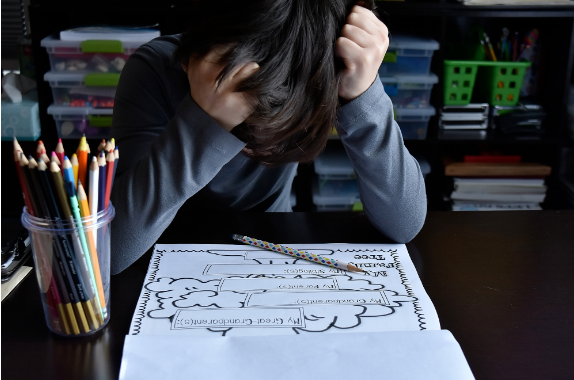|
If you have a child struggling with ADHD, seeking the services of an ADHD psychiatrist can be beneficial. We can provide a clear, documented diagnosis and help find options to reduce symptoms and make life easier for your child. As a parent, however, you also have the opportunity to advocate for your child through the school system, and the following information may be of help.
What Is ADHD? Attention Deficit Hyperactivity Disorder (ADHD) is a neurological disorder that can affect children and adults in many ways. People with ADHD can experience a wide range of symptoms including difficulty with attention, focus and organization. Hyperactivity and impulsivity and moodiness also are among the symptoms. ADHD often presents more obviously in boys than in girls, but that doesn’t mean that girls don’t need just as much support. If your child is struggling in school with focus or completing homework or perhaps they seem forgetful, anxious or constantly daydreaming, ADHD could be the cause. The best step that parents can take is to have their child evaluated by a psychiatrist or psychologist. Be sure to find a psychiatrist or psychologist that focuses on providing a thorough diagnosis that gives you a clear picture of all of the issues your child might be facing. It is very common for a person with ADHD also to have a co-occurring disorder such as anxiety, depression, OCD or Autism Spectrum Disorder and we must uncover all of these issues to provide the best possible support. Is ADHD a Disability? We often think about disabilities as something physical or perhaps we think of a student with an intellectual disability such as Down’s Syndrome. However, neurological disorders also are disabilities. The Americans With Disabilities Act (ADA) defines an individual with a disability as a “person who has a physical or mental impairment that substantially limits one or more major life activities.” These activities would include attending school, and, as anyone with ADHD can attest, school can be tough when you have ADHD. Children with disabilities are entitled, by law, to have an education equal to that of their peers. To ensure that level of equality, accommodations may be needed and the school site will need to create a plan to facilitate a learning environment that supports a child with ADHD or with any type of disability. As a parent, you are well within your rights to contact the school and ask to meet with the teacher and administrators to talk about what types of plans can be put into place for your child. This can be easier to do once you have a diagnosis in writing either from a psychiatrist or psychologist, but you definitely don't have to wait in order to seek support from your school. IEP Vs. 504 Plans Vs. SSTs The educational system throws plenty of acronyms and abbreviations at parents, and you may hear a teacher or special education provider talk about terms such as an IEP, an SST or a 504 plan. Let’s take a look at each of these plans and how they can benefit a student with ADHD. Individualized Education Plans (IEPs) – These are binding legal documents that create a plan for a child struggling with one or more disabilities. The IEP might include special education instruction, outside support services and classroom accommodations that are deemed necessary to ensure student success. With an IEP, parents also can request an Independent Educational Evaluation (IEE). If the school approves the request, the district will pay to have an outside expert evaluate the student. Keep in mind, the district might not agree to your request for an IEE. If you still want an IEE, this will mean you must pay for it out of pocket. Additionally, the IEP can only be used to help students that fit within one of the 13 disability categories listed in the Individuals with Disabilities Education Act (IDEA), which is an act that requires all public schools to provide special education services to any student that is eligible. The 13 categories include:
504 Plans – These are known as 504 Plans because they are derived from section 504 of the U.S. Rehabilitation Act of 1973. This act prohibits any organization that receives federal money from discriminating against people with disabilities. Because ADHD is considered a learning disability, this means that students diagnosed with ADHD are protected under section 504. As with an IEP, a 504 Plan is a binding legal document. 504 plans provide specific accommodations for students with ADHD, such as allowing a student to have extra time to complete an exam or assignment. For older students, this also might entail being allowed to record a classroom lecture. For younger students, this might include allowing them to take a break and walk around or perhaps placing them in a seat that helps to limit distractions. Every student's needs and accommodations are unique, so teachers and administrators need to be flexible to create plans that meet the needs of a specific student. The main differences between the 504 Plan and an IEP are that the 504 includes a broader range of disabilities, but you cannot request the IEE. A 504 Plan also doesn’t typically include special education services and instead focuses on creating goals and classroom accommodations to help a student. Student Study Team (SST) – This is often the first step you will take as a parent toward acquiring support for your child. Sometimes a teacher will suggest the formation of an SST, but parents also can request it. This team typically consists of the child’s parents and teacher and at least one other school staff member. This could be a special education teacher, a student’s former teacher, the school principal or the school counselor. During a Student Study Team meeting, the team will address issues and create some goals and perhaps identify some accommodations or support that could be helpful to a student. SSTs aren’t as binding as a 504 plan or IEP, but they can be an excellent first step to take while you are setting up therapy and meeting with an ADHD psychiatrist. In some cases, a child with mild ADHD might only need a few minor accommodations and an SST might be all that is warranted. ADHD Medication: Is This A Good Option? Parents are often hesitant about having their children use medication for ADHD, and as a pediatric psychiatrist, I understand the hesitation, but as a medical professional, I also feel that medication can be very beneficial for some patients. The most common medications used to treat ADHD include methylphenidate (brand names Ritalin and Concerta) and dextroamphetamine with amphetamine (Adderall). Another stimulant medication is lisdexamfetamine (Vyvanse), These are in a class of drugs known as stimulants, and they help to boost the levels of norepinephrine and dopamine in your brain. These are brain chemicals that help us focus and pay attention to tasks. Because these drugs are stimulants and because some people (without ADHD) abuse them recreationally, they have a dubious reputation. However, both of these medications have a long history of use to treat ADHD and other disorders and the majority of children taking these drugs, or about 80%, report a significant reduction of ADHD symptoms when using these medications. Ritalin was developed in the 1940s and has been used for more than 50 years to treat symptoms of ADHD. Concerta, which is essentially an extended-release type of Ritalin, was approved for use more than 20 years ago. Adderall has been used for nearly 30 years, and Vyvanse, is essentially the extended-release version of Adderall. Unlike some medications, a few of these ADHD medications can be taken as needed, such as just on school days. While these medications can be effective, there are a few side effects that some children experience. One of the most significant side effects is a reduced appetite, so parents must pay close attention to their child’s eating habits to ensure they are continuing to get proper nutrition. In some cases, these drugs can upset sleep schedules and cycles, and we can adjust the dosage or adjust the type of drug to help with this issue. It is also important to note that if your child has another condition, such as bipolar disorder, some ADHD drugs aren’t going to be an appropriate treatment option. Non-stimulant drugs for ADHD include atomoxetine, which is in a class of drugs known as selective norepinephrine reuptake inhibitors (SNRIs). Guanfacine is yet another option, in a class of drugs known as centrally-acting alpha2A-adrenergic receptor agonists. This drug is meant to affect the portions of the brain responsible for attention and impulsivity. Therapy Is Crucial Your ADHD psychiatrist can prescribe medication and will provide you with information about all of these drugs and recommend options that seem to be the best fit for your child. However, we usually also recommend some behavioral therapy. Medications prescribed by a child psychiatrist can help with focus, but patients experience the highest level of success with a combination of therapy and medication. These therapies teach essential coping mechanisms and strategies to help a patient deal with their ADHD long-term. Adult With ADHD? Contact Me Today While I don't offer services as a pediatric psychiatrist or child psychiatrist, I can help young adults and older adults struggling with ADHD, including providing a diagnosis that covers all of the issues you may be facing. I can meet with patients in person and offer telepsychiatry services if you prefer to meet with an online psychiatrist or live too far from my offices in Thousand Oaks.
0 Comments
Attention Deficit Hyperactivity Disorder (ADHD) is a complex neurological disorder that affects people of all ages. While we often think about ADHD as a disorder that affects children, teenagers and adults often also are affected. If you are concerned that you or a loved one may have ADHD, working with an ADHD psychiatrist can help.
|
AuthorDr Jesalva is a psychiatrist. He is in private practice in Thousand Oaks, CA since 1989. He successfully treats very challenging patients with varying co-occurring disorders with medications. Archives
May 2024
Categories
All
|


 RSS Feed
RSS Feed